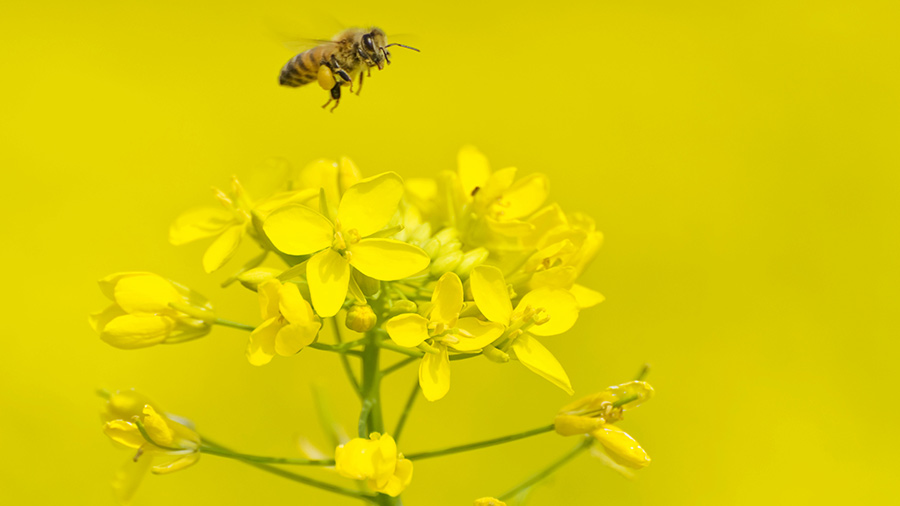Gove announces £60,000 project to protect bees
 © Lawrence Lu / imageBROKER/REX/Shutterstock
© Lawrence Lu / imageBROKER/REX/Shutterstock Defra secretary Michael Gove has announced a £60,000 fund to identify where new habitats will provide the greatest benefit for bees and other pollinators.
The project aims to help increase the number of pollinator-friendly landscapes as part of the government’s 25-year Environment Plan.
It will involve partnering with organisations such as Natural England, Buglife, The Wildlife Trusts and other bodies working on habitat-mapping and the conservation of pollinators.
See also: Can sugar beet survive a future without neonicotinoids?
Announcing the plan, Mr Gove said: “Bees and other pollinators are vital contributors to the beauty of our landscapes, our economy and our £100bn food industry.
“Today’s announcement to fund pollinator-mapping shows our clear commitment to helping these wonderful creatures to thrive by creating wildflower-rich areas around our towns and countryside.”
The announcement follows a campaign by Ben Bradley, Conservative MP for Mansfield, to better protect pollinators and to leave our environment in a better state for future generations.
Protection of Pollinators Bill
Mr Bradley’s Protection of Pollinators Bill has been printed in the House of Commons. It asks Defra to help bees and other insects by protecting their habitat and supporting the creation of “pollinator corridors”
The Bill calls for the creation of “B-Lines” – a series of planned “insect pathways” or pollinator corridors running through our countryside and towns – designed to help support pollinators including bees, butterflies, wasps and moths.
More than two-thirds of Britain’s pollinators are in decline and 35 of the UK’s bee species are currently under threat of extinction. Defra says the loss of wildflower-rich habitat is one of the main threats to their survival.
Mr Gove has already set out proposals to replace the current EU’s common agricultural policy regime with a post-Brexit domestic agricultural policy, which includes rewarding farmers who create wildflower meadows and provide habitats for wildlife.
In April, the government voted in favour of further restrictions on the use of three neonicotinoid pesticides, citing their harmful effects on bees and other pollinators. The measures will come into force at the end of the year.
The NFU and other farming organisations have opposed restrictions on the use of neonicotinoids, maintaining that the science remains unclear over the effect of these pesticides on pollinators at field scale.
Defra invests in pollinator-friendly farming landscapes
The government has also announced investment in two projects to create pollinator-friendly landscapes:
- The Bumblebee Conservation Trust’s “West Country Buzz” project in North Devon, which seeks to grow a partnership of land managers, farmers and NGOs to improve and connect habitats for bees.
- The Martin Down farmer “super cluster” in Hampshire, led by the Game and Wildlife Conservation Trust, farmers and landowners. This will provide training and advice to enable three farmer clusters to protect and enhance wildlife, including pollinators.
